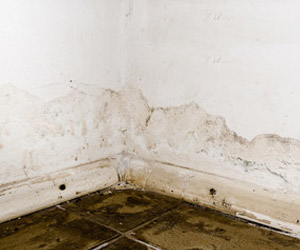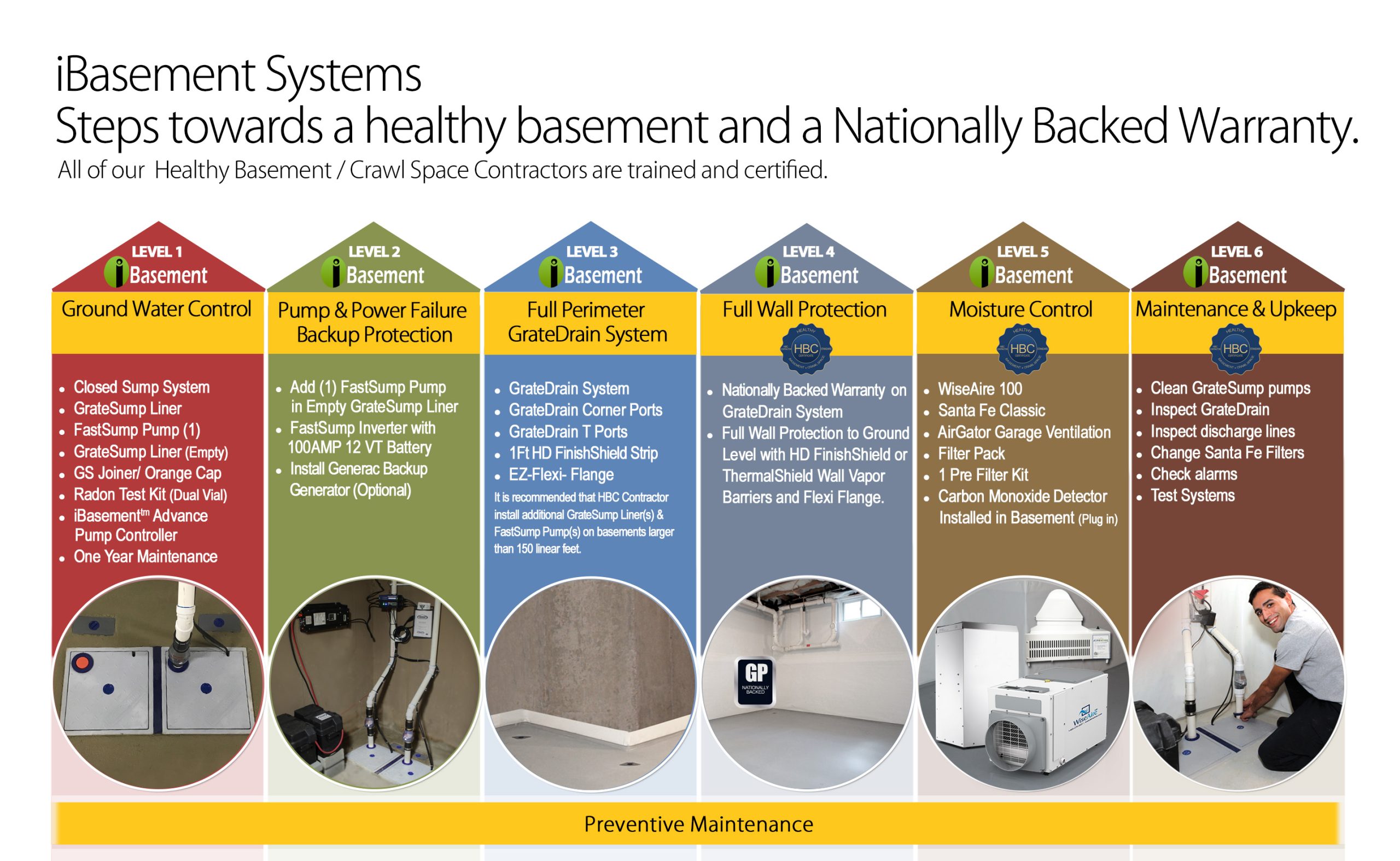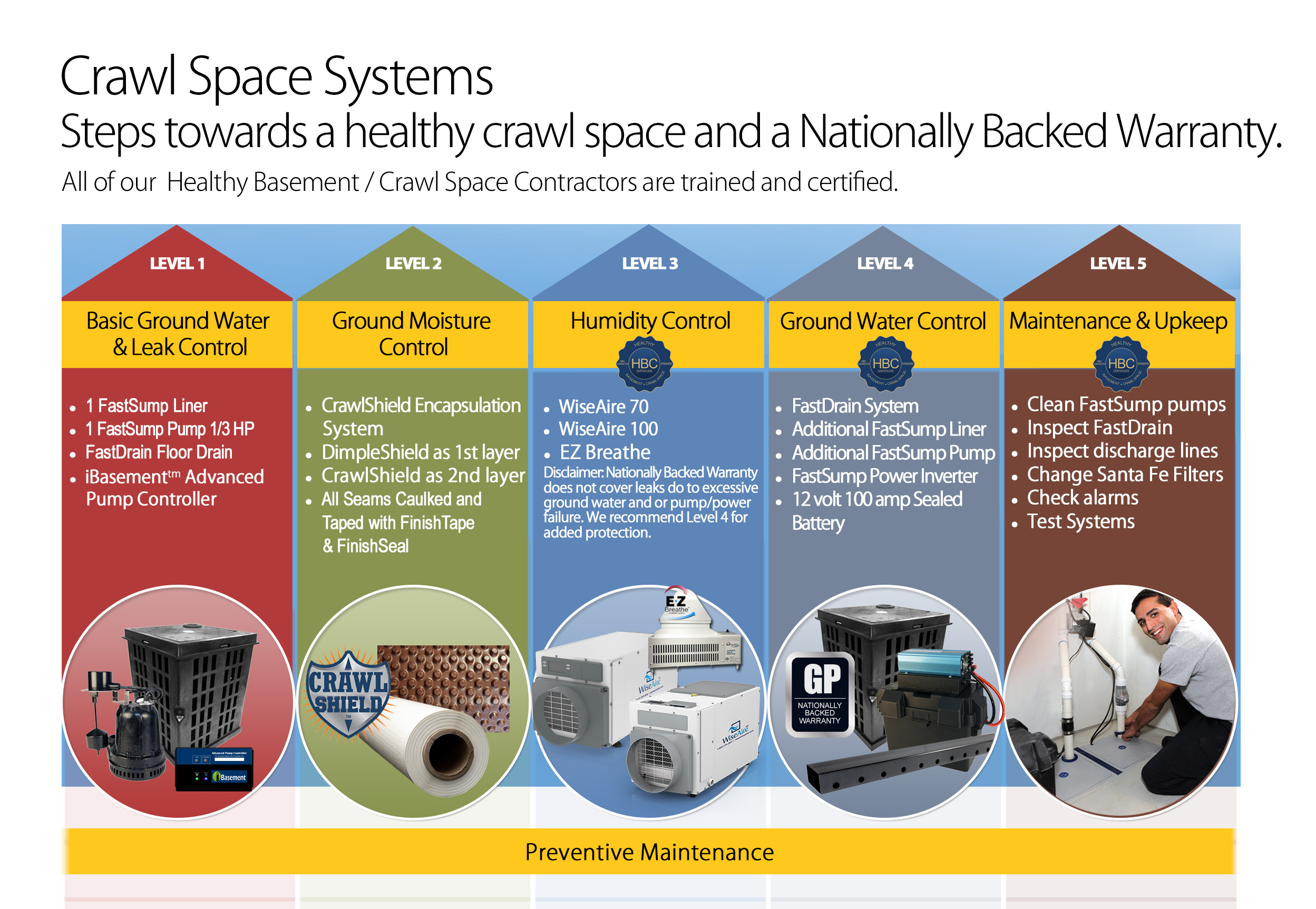Why do basement leak?
Some of the common causes behind basement leaks are the ways basement foundations are established like the excavation of soil & backfilling, and different sorts of concrete wall blocks or stone walls used in building the basement. Pioneer Basement is an expert at fixing leaks in wet, moist, & damp basements and crawl spaces. We have been serving the customers of the Massachusetts & Rhode Island area for over 35 years now.

Causes of Basement Leaks
1. Excavation & Backfilling
During the establishment of a basement foundation, a portion of soil is removed to make the space needed for the construction. Upon completion of the basement, the soil is backfilled against the wall of the basement. This soil is much looser and more permeable to water than the soil that has remained untouched. Meaning that this soil will absorb more water on rainy days, increasing the chances of water seeping through the basement wall.
2. Wall-Floor Joint
A small gap is usually created intentionally between the floor and the wall to prevent cracks from forming in the floor. Water under high pressure can penetrate this gap and seep in through the foot of the basement.
3. Clogged Footing Drain
Footing drains can sometimes be crushed during the backfilling process. Moreover, footing drains clog over time due to particles in the soil and become ineffective in the drainage of the water. The water then finds its way into the basement through small openings and gaps.
4. A leak in the Basement Wall
Various types of blocks used in the basement foundation have various chances of leaking. For instance, stone wall joints can weaken under immense pressure from the water, and create small gaps through which water can enter; the same happens with concrete block walls.
Choose Pioneer Basement to Stop Your Basement Leak in Abington & Cambridge
Pioneer Basement is a member of the Basement Health Association and our entire staff is certified to meet the highest standards. We provide premier service to all of our customers. Call us today from Abington, Barnstable, Cambridge, Danvers, Edgartown, and other places in the Massachusetts and Rhode Island areas at 508-416-6564 for a free inspection and we’ll get started immediately!
iBasement Systems & Crawl Space Systems Certificates
The iBasement Systems and Crawl Space Systems Certificates were created using specific sets of criteria to provide a healthy indoor living environment. Air pollutants and excessive moisture levels in the basement or crawl space can negatively impact the odors in the home as well as cause health problems with those who live there year-round - including yourself!
We offer 6 levels of iBasement Certificate, and 5 levels Crawl Space Systems Certificate, each designed to solve specific problems and protect your home, family, and property value on the long run.
Steps towards a healthy basement and a Nationally Backed Warranty.
All of our Healthy Basement / Crawl Space Contractors are trained and certified.

Steps towards a healthy crawl space and a Nationally Backed Warranty.
All of our Healthy Basement / Crawl Space Contractors are trained and certified.

Why does my basement smell musty?
That infamous musty odor indicates the presence of mold in your basement, even of you can’t see mold spots yet. Mold is a smelly fungus that loves damp and dark environments like a basement. Even in small concentrations it still releases spores and odors in the air.
Is mold in the basement dangerous?
Only a few species of mold, such as black mold, produce hazardous mycotoxins that can trigger serious health problems. Yet, every species of mold growing indoors releases spores which, in high concentrations, will negatively impact indoor air quality. This can trigger mild to sever allergy symptoms in sensitive people.
How to clean up mold in my basement?
If you have a visible mold infestation in your basement, start by getting rid of all the moldy items. Cardboard, paper, fabrics, upholstery, wood, drywall, and insulation must be removed and properly discarded. You can then clean mold from the walls and other hard surfaces using these CDC guidelines. https://www.cdc.gov/mold/mold-cleanup-bleach.html
How to get rid of basement mold?
The most effective way to permanently kill mold and keep it from growing back is to always keep Relative Humidity Levels in the basement below 60%. That can be accomplished by running a good basement dehumidifier that will constantly monitor RH levels and run as needed of the levels are too high.
What are those stains in my basement wall?
Stains in basement walls can have different causes. Some stains are mold. Others, like rusty-colored stains can indicate the presence of iron ochre in the groundwater, and a white, powdery substance covering the walls can be efflorescence. Basement wall stains usually are a sign of water seepage, and that your basement would benefit from drainage improvements.
What Our Customers Say About Us
Accreditations

Angie’s List Super Service Award 2016

Home Advisor Screened & Approved

Basement Health Association Member

Better Business Bureau Rating A+

BestPickReport.com -4th year as a Best Pick!
Service Area
Pioneer Basement offers a variety of services from waterproofing to foundation repairs. We offer the following services in your area, basement waterproofing, crawl space encapsulation, sump pump installation and service, basement crack repair, vapor barriers and moisture control.

